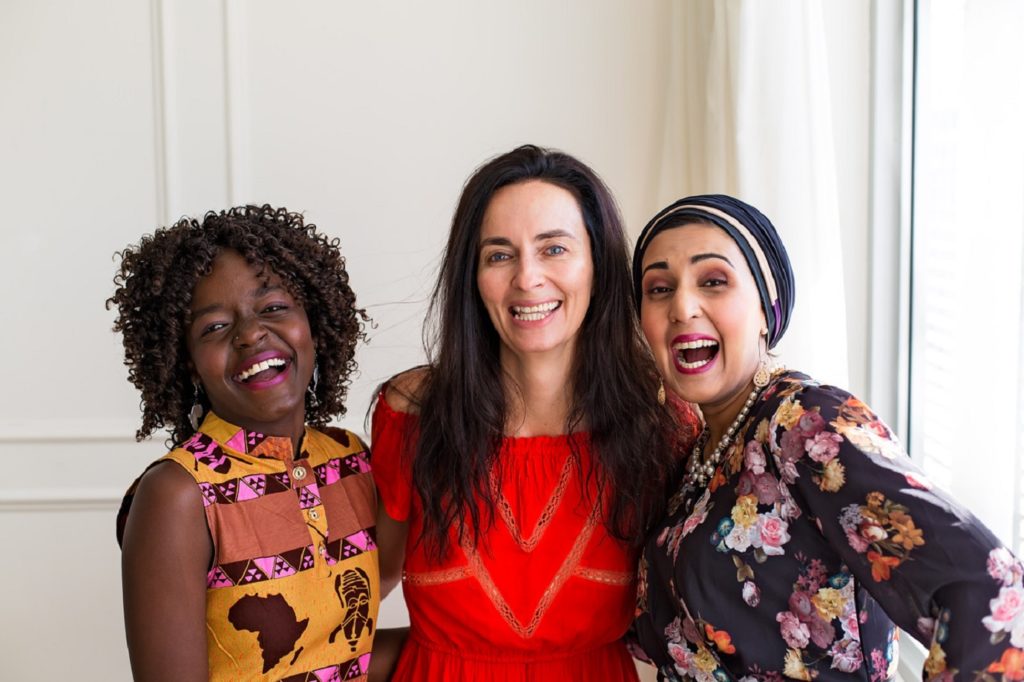I regularly see women wanting to start a micro business but hitting a brick wall when it comes to accessing financial products and services they need.
One particularly galling story involved a woman attempting to buy an entry-level business insurance product. She was told by a call centre consultant it would be easier and faster for everyone if she put her husband on the phone.
She was later threatened that if she traded without insurance and something went wrong, she would be sued and lose everything. Scared, she took her products down from her website.
Here was a low-income domestic violence survivor trying to start a business and she was left in fear. More broadly, women micro business owners consistently report having problems when it comes to navigating and securing financial services to meet their needs. They are excluded from accessing affordable and appropriate products and services. They face sexism and judgement. Extraordinarily, women are still being told to put a man’s name on their loan form.
A micro business is when someone works for themselves or employs up to four people. So many women fit into this category or have a great idea they would like to turn into a new income stream. We know the main reason they want to be self-employed is flexibility, largely because they have carer responsibilities – whether it be children, partners or parents.
Unfortunately, it won’t be an easy journey starting or growing their micro business. A single mum or low-income earner working casually or a contractor wanting to get a loan? It’s very hard— in many cases, too hard. The major problem is the financial services industry simply isn’t serving this rapidly growing customer segment. Most of their financial products—whether it be getting a loan, insurance or business advice — are not designed with women in micro business in mind. In some instances, they cause harm.
It is well recognised that women need to be given more pathways to economic security. The Women’s Economic Equality Taskforce recently advised Minister Katy Gallagher in the lead-up to the May 2023 budget that women “experience punishment, inflexible barriers, or outright exclusion from our social and economic systems every time they try to make progress or gain ground.” They argued that economic equality will only come about through a series of structural reforms.
Most reforms begin from within the sector, and here lies an exciting opportunity for forward-thinking organisations in banking, finance and superannuation to demonstrate their leadership, innovation and commitment to sustainable business development. As I have seen firsthand how being flexible and accessible makes a difference — our organisation has supported more than 5500 Australian women and seen the launch of over 1000 new businesses.
Recent research from Deloitte reveals there is a potential $128 billion benefit to the Australian economy by breaking the gender norms that drive inequality. It also makes business sense. Of the 1.65 million small business owner managers in Australia, 550,000 are female.
I wonder how many more micro businesses there need to be to show there is a market for serving them. But more importantly, how much evidence do we need to tear down the enduring myths and unconscious biases about women, women-led business, women and her capacity to repay a debt, and women and her ability to manage caring responsibilities and a business? When are women going to stop being asked to have a man on the loan form?
Some incredible players in the finance sector are thankfully starting to reject these myths, as we saw recently at a forum we hosted, Fixing Finance for Women in Micro Business. We heard from leading banking financial institutions, key industry leaders and decision makers, and discussed new research, innovation and how to design financial products with women front of mind.
Ultimately, we want the finance sector to listen to women in micro business and better understand and accommodate their needs. We want to stop the bias against women. We want women to succeed in their business journeys. The outcomes will change the lives of so many women who have long been ignored.
Feature Image: Mandy Richards, CEO and Founder of Global Sisters (centre) with ‘Sisters’, Kagi Kowa (left) and Raeesa Ally Khatree (right).

